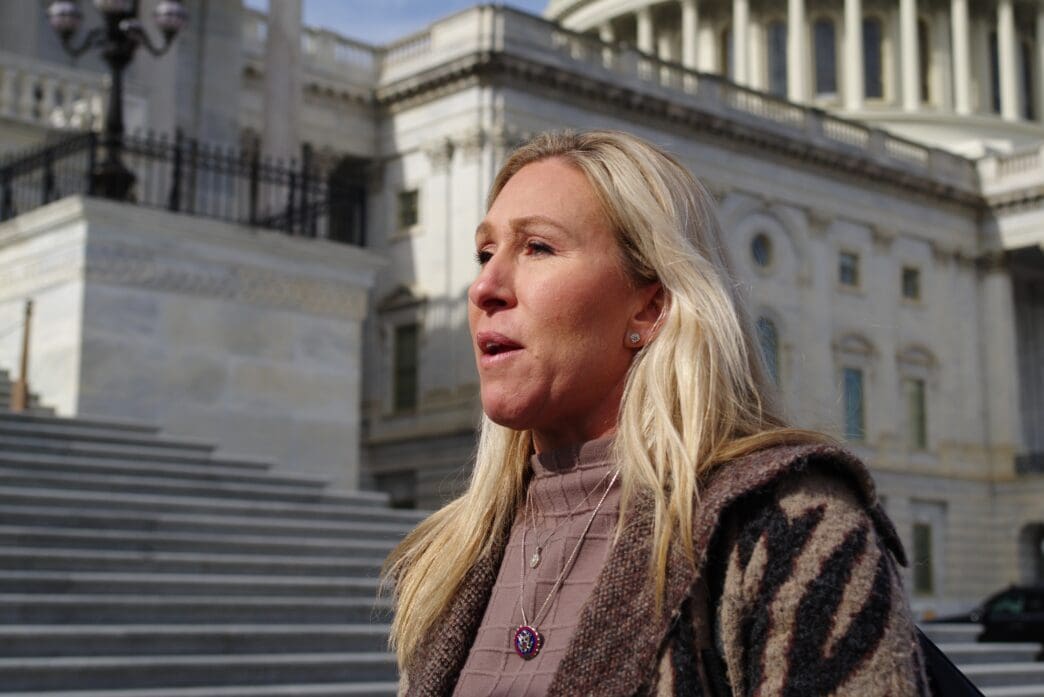Executive Summary
- The Republican Party’s government shutdown strategy is facing significant internal challenges, with multiple members, including Representative Marjorie Taylor Greene, publicly undermining leadership’s negotiating posture.
- Key issues such as enhanced Obamacare tax credits and ensuring military paychecks remain unresolved, with some House Republicans calling for Congress to reconvene to address these deadlines.
- Internal GOP divisions, including pushback against Trump’s suggestions for targeted budget cuts, are weakening the party’s unified stance and are likely to strengthen the Democrats’ position in ongoing shutdown negotiations.
The Story So Far
- The current government shutdown is characterized by unresolved issues, notably enhanced Obamacare tax credits and military paychecks, which are central to ongoing negotiations. While initial disunity was observed within Democratic ranks, the focus has now shifted to growing internal dissent within the Republican Party, where members are publicly challenging leadership’s negotiating posture and even pushing back against President Trump’s suggestions for targeted budget cuts. This lack of a unified GOP strategy, particularly on key demands, is contributing to the current stalemate and internal friction.
Why This Matters
- The emerging internal divisions within the Republican Party, evidenced by members publicly challenging leadership on issues like Obamacare tax credits and military pay, are significantly undermining the GOP’s negotiating position in the government shutdown. This disunity is likely to strengthen the Democrats’ hand and could force Republican leadership to compromise, potentially leading to a quicker resolution to the shutdown as critical deadlines loom.
Who Thinks What?
- Republican leadership, including Speaker Mike Johnson, aims to maintain a firm negotiating posture, attributing blame to Democrats, and does not see an immediate need to reconvene the House for a full budget or prioritize certain demands like military pay.
- Several House Republicans, including Marjorie Taylor Greene, Kevin Kiley, Jen Kiggans, and Mike Lawler, publicly disagree with leadership’s strategy, criticizing the handling of the shutdown, advocating for specific actions like extending Obamacare tax credits, reconvening the House for a full budget, or ensuring military paychecks.
- President Trump suggests that government cuts should focus solely on “Democrat programs,” a stance that some Republican senators, like Lisa Murkowski, caution against, warning it could undermine the GOP’s political advantages.
The Republican Party’s strategy during the ongoing government shutdown is facing internal challenges, with multiple members publicly undermining leadership’s negotiating posture. This comes a week after initial Democratic disunity, shifting the focus to growing dissent within GOP ranks as key issues like Obamacare tax credits and military paychecks remain unresolved.
Internal GOP Dissent Emerges
Representative Marjorie Taylor Greene has become a prominent voice of dissent, openly criticizing Republican leadership. She signaled support for extending enhanced Obamacare tax credits, a key Democratic demand, and questioned why leadership had not addressed the issue with more urgency.
Greene attributed blame for the shutdown to Speaker Mike Johnson and Senate Leader John Thune, challenging the party’s narrative that Democrats were solely responsible. She also raised questions about the delay in seating Democratic Rep.-elect Adelita Grijalva, implying it might be to avoid the 218th signature on a petition to release the Jeffrey Epstein files.
Calls for House Action and Military Pay
Other House Republicans have also publicly diverged from leadership. Representative Kevin Kiley of California called for the House to reconvene to work on a full budget, contradicting Speaker Johnson’s assertion that it was unnecessary since the chamber had already passed a short-term funding bill.
Representative Jen Kiggans of Virginia urged Johnson to recall Congress to pass legislation ensuring military members receive their paychecks before next week’s deadline. Kiggans’ proposal, co-sponsored by over 100 House Republicans, challenges leadership’s use of military pay as leverage in negotiations.
Divisions on Budget Cuts and Negotiations
Republican senators have also pushed back against the Trump administration’s suggestions regarding government cuts. President Trump stated that “We’re only going to cut Democrat programs,” but several Republicans, including Senator Lisa Murkowski of Alaska, cautioned against such targeted reductions, warning it could squander the GOP’s political advantages.
In a notable incident, Representative Mike Lawler of New York publicly confronted House Minority Leader Hakeem Jeffries, asking him to support a one-year extension of Obamacare subsidies. However, Lawler’s bill lacked the support of GOP leadership, highlighting a lack of unified strategy within the party on a key negotiating point.
Outlook on Shutdown Negotiations
The emerging internal divisions within the Republican Party suggest a reluctance to maintain a firm negotiating stance, potentially bolstering Democratic resolve. While the situation remains fluid, especially with the looming military paycheck deadline, these public disagreements are likely to strengthen the Democrats’ position in the ongoing shutdown negotiations.








